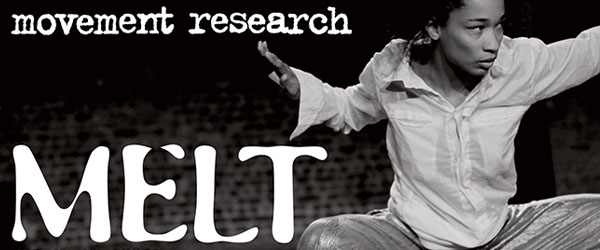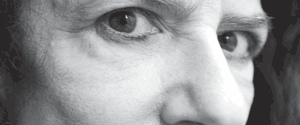Critical Correspondence
Moving Dialogue: PART I – Illicit Dances
Cristiane Bouger “I remember we used to steal reviews from the American Library to know about choreographers like Twyla Tharp and Lucinda Childs”. The controversial statement made by choreographer Vava Stefanescu during Moving Dialogue exchange reflects upon the awkward subversions she and her peers dealt with to have access to some information about the international […]
Moving Dialogue: PART II – Exchange Bucharest/New York
Cristiane Bouger As an aditional way to write about our shared experiences, I designed this diagram in which it is possible to have a glimpse of my impressions on the first week of our exchange. Feel free to react to what is pictured and please, let me know if something is inaccurate. I did not […]
Moving Dialogue: PART III – Notes on Moving Dialogue at the Judson Church
Cristiane Bouger When the audience entered the space at the Judson Church, Mihaela Dancs was already working on her solo Lulu’s Room. Her presence in the space was not clear, though. I constantly questioned myself whether she was warming up or performing, and the situation triggered an interesting investigation about what it means to perform. […]
Moving Dialogue: Meeting Points, Useful Differences
Gina Serbanescu
After a week of Moving Dialogue exchange between American and Romanian artists a clear fact took shape: what, at the beginning, was a tendency towards communication merged into sharing. During the exercises, the improvisations, the moments of creation, we could witness a context in which points of connection were found. But, at the same time, we could also see how each artist preserved his or her creative individuality.
Christine Elmo in response to “Seven Works by Trisha Brown”
Christine Elmo
I often use dance as a tool for understanding the social structures that dominate our lives. Like all mediums, dance reflects the societies we live in.
In a time of dramatic economic and cultural shifts—it feels important, to me, to look at what has come before. The Trisha Brown Dance Company gave me an opportunity to do just that on Wednesday, September 29th at the Whitney Museum of Art, where I watched Seven Works by Trisha Brown be performed.
Response: Lindsey Drury on Ishmael Houston-Jones, Dennis Cooper and Chris Cochrane’s THEM, with a reply from Ishmael
Lindsey Drury
THEM is a smelly, hairy, sweaty dance. Lit like a dank alleyway, danced in saggy tee shirts and scuffed hi-tops, the piece reeked of boy-stank. It had the kind of virility in it I also found as a child in the smell of my brother’s gym socks. The dancing chases itself, enduring its own repetitions in search of some kind of ending, or culmination, or resolution.
Moving Dialogue: Slices of Week One
Anna Drozdowski
“How do you live here?” Vava asked us in the roundtable discussion, and the room laughed that laugh of pride and incredulity that comes when you recognize the way you’ve forgotten how special and strange your circumstances are. One week into our Moving Dialogue, we’ve stopped identifying the myriad of differences that separate the dance communities in Romania and NYC
Moving Dialogue: A US and Romanian Exchange
Moving Dialogue is a two week exchange between a group of US and Romanian choreographers and writers about performance. Critical Correspondence will be hosting writings from Romanian writer Gina Serbanescu, as well as US-based Cristiane Bouger and Anna Drozdowski on our site throughout the exchange as well as after. We are excited to see what […]
E.J. McAdams in response to Kathy Westwater’s “PARK”
E.J. McAdams
It is hard to say when the performance of Kathy Westwater’s PARK began:
When we the audience met the John F. Kennedy ferry at the Battery?
When Raj Kottamasu, a member of the Parks Department’s Freshkills Park team and our guide, told us the history of the landfill and jokingly said, “If you lived in New York before 2001, you helped build this park?”
MR Festival 2009: Catalogue of Engagement: OBSERVE/ REFLECT
by Maggie Bennett
MR Festival Spring 2009: Roll Call
I Heart Judson
Monday April 27, 2009, Judson Memorial Church, 8:00 pm
Personal Reflection:
I was sad not to see dance.
Performa 09: Notes from the Noise Panel
by Biba Bell Noise, is it pollution? Is it physiological or social assault? Cage said it’s an issue of social justice, that noises have been discriminated against. And with his seminal 4’33”, the Pandora’s box was opened, so said Conrad, noise flooded into music and was lost. The panel was a group of friends, colleagues, […]
Performa 09: parades & changes, reenactment at DTW
by Ursula Eagly I just read a Japanese postmodern novel from the 80s. In true pomo form, the author (a poet) has written himself into the book. He teaches poetry at a poetry school, and he admits he has little to teach: “When I read a poem, I respond to it in one of two […]
Performa 09: a sincere proposal for thinking about irony
by Karinne Keithley Ursula’s post on Art History with Benefits passes through a performance position I’ve been trying to wrap my head around for a while, viz. the so called new sincerity. My questioning around sincerity began in my own performing, during a glacial process of answering a call I perceived, to make something of […]
Performa 09: Solo + SoloShow ensemble
by Biba Bell How does the diptych function in performance? Two pieces are not placed next to one another, they are necessarily separate in time, sequenced. One remains in memory, organizing with the force of its haunting. It is easy to see the first in the frame of a transposed singularity, but the second piece […]
Performa 09: three horses run around a discussion at the performa hub one afternoon
by Biba Bell <horse #1. she says she cannot ride a horse. it is an issue of control. she does not want, can not, control the horse in the ways needed in order to ride. some of us have ridden, some not. patrick swayze had a horse ranch, said he.> how does conceptualism engage with […]


